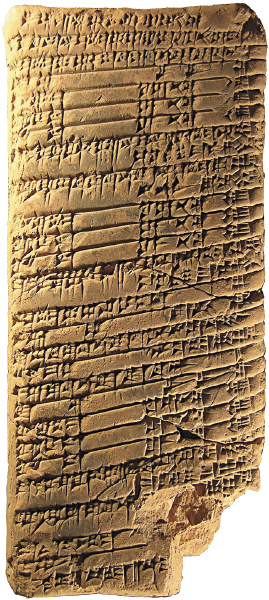Two Kingdoms from One (12:1–24)
Rehoboam went to Shechem, for all the Israelites had gone there to make him king (12:1). Shechem was a logical place for such a national gathering (see sidebar on “Shechem”). Like prior Israelite kings, Rehoboam had to be ratified by the tribal leaders (cf. 1:21). This is because the people understood the king to be the patriarch of the nation, a “father” on a higher scale.225 Traditionally scholars have treated the founding of the monarchy as a societal paradigm shift rather than a family/clan model scalable to the national level.226
Rehoboam was at a disadvantage by meeting in Shechem and not in Jerusalem because the strong traditions associated with the place most likely reminded the northern tribes of their supremacy until the days of David. Solomon lacked David’s charisma and record of conquest, and his policies exacerbated traditional tribal rivalries (4:7–20). “All the Israelites” here likely refers to the northern tribes without Judah and Benjamin of the south.
Lighten the harsh labor and the heavy yoke he put on us, and we will serve you (12:4). The yoke refers to the corvée labor noted in 9:15. The Akkadian expression for yoke implies “rule” or service. The delicate balance between royal demands and the tolerance of the populace was not an uncommon issue faced by ancient kings.227 For example, the Hittite king Tudhaliya describes an adjustment to his burdensome forced labor and taxation in a treaty document of the second millennium B.C.228

The tale of Gilgamesh and Akka (Aga) in which the advice of the elders is rejected in favor of the younger men
The Schøyen Collection MS 2652/1, Oslo and London
Rehoboam rejected the advice the elders gave him (12:8). Like their counterparts in the Near East, the elders of Israel seem to have been both an amorphous group in daily life settings and a recognized social stratum within the court. Kingly councils, including one in the famous Gilgamesh Epic, can be traced as far back as Sumerian texts from more than a thousand years before David and Solomon.229 The elders in Rehoboam’s day seem to have had a much longer frame of reference than did the young courtiers who opposed them.230
My father scourged you with whips; I will scourge you with scorpions (12:11). The point of Rehoboam’s statement is clear, but the increased severity is accentuated by reference to “scorpions,” which in Akkadian can be translated “metal-tipped thorny whips.”231
What share do we have in David, what part in Jesse’s son? To your tents, O Israel! (12:16). The scene is almost a repeat of prior revolts in Israel (e.g., 2 Sam. 20:1). The division of the monarchy is commonly referred to as the “schism,” but in reality the division into northern and southern kingdoms was a return to the natural state of affairs based on geographical realities and long-held tribal associations. The tensions of the tribal league described in Judges will now manifest themselves in military conflict between neighboring polities. In their admonition to “look after your own house, O David,” the people of the north may have been referring to the relative inferiority of Judah’s resources in comparison to the large, well-watered north.232
Called him to the assembly and made him king over all Israel (12:20). This change in dynasty has much in common not only with the challenge of Adonijah (1:5–53) but also with the patterns of dynastic transition in Mesopotamia over several hundred years. The role of the council, the turn of events, and even the vocabulary reflects a “divine turning” in the transfer of kingship that transcends cultural differences.233
A hundred and eighty thousand fighting men (12:21). The Judean hope of reuniting the land persisted until the days of Josiah in the sixth century and beyond. The numbers in this verse do not accord with contemporary records. At the height of his power Ahab contributed 10,000 chariots to an alliance against an Assyrian force of 60,000.234 In this verse and many other biblical passages, the Hebrew expression ʾelep is commonly understood to mean not only “thousand” but also “unit” or “clan,” thus suggesting that 180 clans are represented, or perhaps 180 divisions.235 This interpretation is born out in many biblical passages.
This is what the LORD says: Do not go up to fight against your brothers (12:24). The prophetic caution against military invasion, while far less common in non-Israelite prophetic traditions, is attested in a small number of texts, including a stern warning to King Zimri-Lin of the second millennium kingdom of Mari not to proceed into battle.236